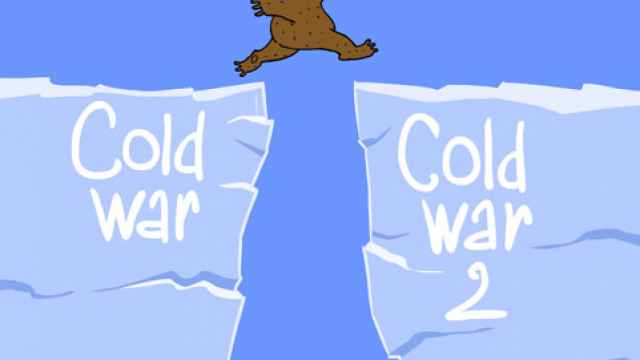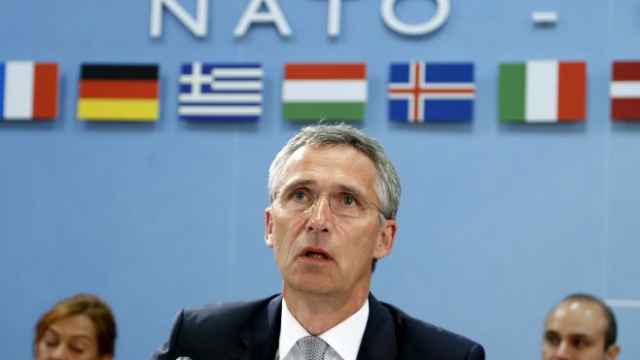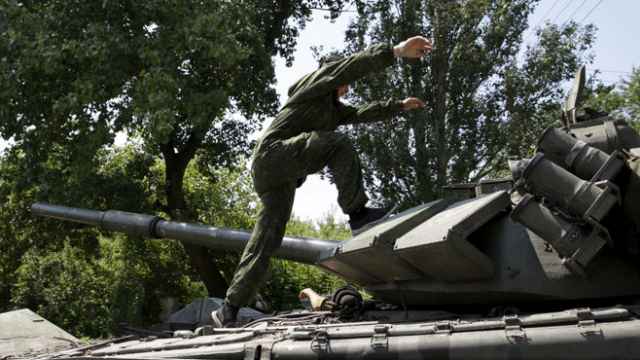Russia and NATO must agree on common rules to handle unexpected military encounters to reduce the risk of inadvertently triggering a war between Moscow and the West, a group of former foreign and defense ministers said on Wednesday.
With both Russia and NATO intensifying military exercises because of the crisis in Ukraine, incidents such as mid-air face-offs between rival military jets are on the increase.
Calling for a high-level NATO-Russia meeting, the group of 14 — including former Russian Foreign Minister Igor Ivanov, ex-German Defense Minister Volker Ruehe and colleagues from Britain, France, Spain and Turkey — said rules for communication at sea and in the air were paramount.
“The situation is ripe with potential for either dangerous miscalculation or an accident that could trigger a worsening of the crisis or even a direct military confrontation,” they said in a report published by the European Leadership Network.
The London-based think-tank, which this month said both sides were training for the possibility of war, said it had recorded 66 “close military encounters” between Russian and NATO military forces, and between Russia and neutral Sweden and Finland, which NATO counts as partners.
It has been keeping count since March 2014, when Russia annexed the Crimean Peninsula from Ukraine. The following month, a separatist war broke out in eastern Ukraine between pro-Russian rebels and government forces.
NATO rejected any suggestion that its military exercises make war in Europe more likely and said even before any new agreements were made, Russia could take steps to ease tensions.
“Russia has many tools already available to avoid unintentional conflict, to reduce tensions and to increase transparency, ranging from arms control agreements to voluntary measures,” NATO’s chief spokesperson Oana Lungescu said. “It should ... focus on implementing its existing commitments.”
Russia denies its exercises pose any hazard.
The group of former ministers said an agreement, possibly based on a similar pact between the United States and China, would set out actions to avoid, such as attack simulations near the other side’s military vessels and aircraft.
If such exercises or live weapons-firing did take place, there should be timely warnings and agreed radio frequencies and signals vocabulary.
NATO has suspended all practical and military cooperation with Russia but can still convene political meetings.
Russian snap exercises in March were one of the Kremlin’s biggest shows of force since the start of the Ukraine crisis. It put the navy’s Northern Fleet on full combat readiness in Russia’s Arctic North, close to Norway, a NATO member.
NATO has also held exercises — not on the same scale — mainly in eastern Europe and the Baltics. Along with its partners, the 28-nation alliance will hold its biggest military exercise in more than a decade from October, although they are taking place in Italy, Spain and Portugal and with a focus also any potential threat along NATO’s southern flank.
The report said an “action-reaction cycle” was now under way between NATO and Russia that could be hard to stop.
“History is littered with examples of international crises and tensions that developed a momentum of their own and resulted in conflict even when no one side intended it,” it said.
A Message from The Moscow Times:
Dear readers,
We are facing unprecedented challenges. Russia's Prosecutor General's Office has designated The Moscow Times as an "undesirable" organization, criminalizing our work and putting our staff at risk of prosecution. This follows our earlier unjust labeling as a "foreign agent."
These actions are direct attempts to silence independent journalism in Russia. The authorities claim our work "discredits the decisions of the Russian leadership." We see things differently: we strive to provide accurate, unbiased reporting on Russia.
We, the journalists of The Moscow Times, refuse to be silenced. But to continue our work, we need your help.
Your support, no matter how small, makes a world of difference. If you can, please support us monthly starting from just $2. It's quick to set up, and every contribution makes a significant impact.
By supporting The Moscow Times, you're defending open, independent journalism in the face of repression. Thank you for standing with us.
Remind me later.





